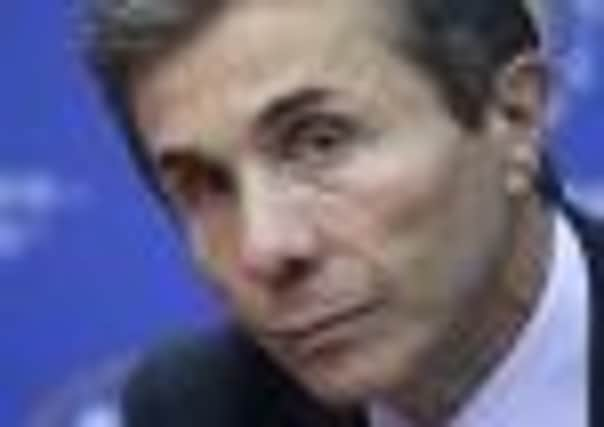Change of government in Georgia as president pre-empts poll result


He said: “It’s clear from the preliminary results that the opposition has the lead and it should form the government. And I as president should help them with this.”
Early results showed an opposition coalition led by billionaire Bidzina Ivanishvili with what appears to be an insurmountable lead as voters turned away from Mr Saakashvili and the party that has been in power in the former Soviet republic for almost nine years.
Mr Ivanishvili confirmed he would become prime minister.
Advertisement
Hide AdAdvertisement
Hide AdMr Saakashvili’s announcement even before results were released preserved calm on the streets of the capital, Tbilisi, where support for the Georgian Dream coalition is strongest.
During his nearly nine years in power, Mr Saakashvili has pushed through reforms and attracted international investment that has led to dramatic growth. Poverty and unemployment, however, remain painfully high.
Georgians have turned against Mr Saakashvili in recent years. Many accuse his party –which has controlled not only the government and parliament but also the courts and prosecutor’s office – of exercising authoritarian powers.
Mr Saakashvili’s campaign was also hit hard by the release two weeks ago of videos showing prisoners in a Tbilisi jail being beaten and sodomised. The government moved quickly to stem the anger, replacing ministers blamed for the abuse and arresting prison staff, but many saw the videos as illustrating the excesses of his regime.
Mr Saakashvili will remain the leader of the country until his second and last term ends next October. Under a constitutional reform that goes into effect after he leaves office, many of the president’s powers will be transferred to the premier, who is chosen by parliament.
This is the first time in Georgia’s post-Soviet history that a government will be changed through the ballot box rather than revolution. Mr Saakashvili came to power through the peaceful Rose Revolution after a rigged parliamentary vote in 2003.
He said there were deep differences between his United National Movement and the diverse opposition coalition.
“We think their views are completely wrong,” he said. “But democracy works through the majority of the Georgian people making a decision, and we respect this very much.”
Advertisement
Hide AdAdvertisement
Hide AdInternational election monitors are concerned at the harsh rhetoric of the polarised campaign and isolated cases of violence, but have praised the election. “The process has shown a healthy respect for fundamental freedoms at the heart of democratic elections, and we expect the final count will reflect the choice of the voters,” said Tonino Picula, who led the Organisation for Security and Co-operation in Europe observer mission.
Mr Ivanishvili has stated his commitment to pursue Mr Saakashvili’s goals of making Georgia part of Europe and Nato, while adding he will seek to restore the trade and diplomatic ties with Russia, severed when the two countries fought a brief war in 2008. Georgian producers of wine, mineral water, fruit and vegetables depended on exports to Russia, and loss of these markets hurt them deeply.